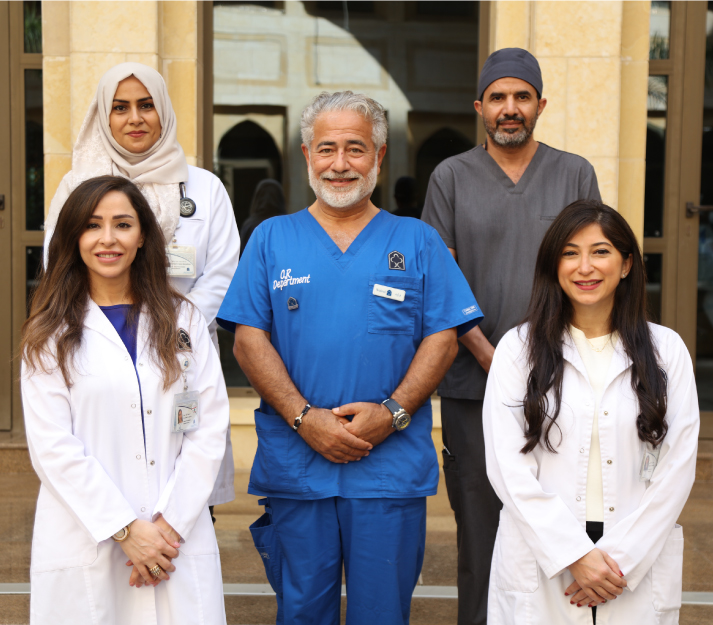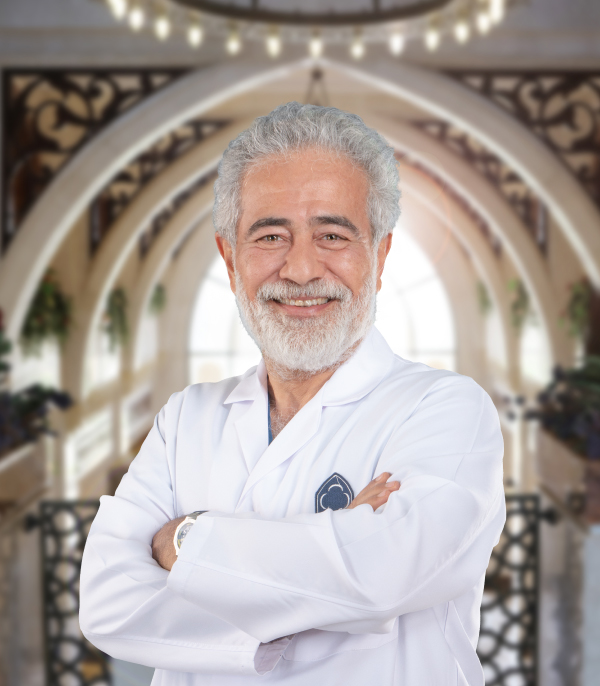The International Medical Center prides itself on being the number one destination for bariatric surgery, with one of the highest rates of bariatric surgery success globally.
Thanks to a multidisciplinary medical team working hand in hand to provide the best surgical services to patients, the Department has succeeded in helping thousands of patients to reach their desired weights. In addition, the Department provides its patients with post-operative health care to help them make the necessary changes in their lifestyles so that they do not regain the weight they have lost.
Before performing bariatric surgery, it is necessary to thoroughly examine the patient, which should include evaluation and thorough examination of hormonal performance, a thorough analysis of the lifestyle and eating habits of the patient, as well as verification and documentation of previous weight reduction attempts.
After this examination, if the surgery is appropriate for the patient, he/she is sent for a psychiatric evaluation.
The patient may need to undergo several laboratory tests and examinations before the surgery.
The Bariatric Surgery Center of the International Medical Center provides the following treatments for weight loss:
- Laparoscopic Sleeve Gastrectomy
- Laparoscopic Roux-en-Y gastric bypass (RYGB)
- Laparoscopic Mini-Gastric Bypass
- Intragastric Balloon
- Removal of the Gastric Band and Gastric Bypass
- Repeated Bariatric Surgery.
The Bariatric Surgery Centre has state-of-the-art equipment that meets international medical standards for bariatric surgery, and patients are cared for by a qualified and integral medical team at the Centre, including:
The consultant will provide consultation and make a treatment plan based on the patient's condition after undergoing tests and checking his general health and whether he/she is fit for surgery in general.
Obesity and its complications are best handled by a multidisciplinary surgical and medical team. At the bariatric clinic, we work with the internist to improve the patient's postoperative condition for chronic diseases such as diabetes, hypertension and others. We also diagnose other medical disorders that can affect the patient's weight loss, such as endocrine disorder, and review the patient's medications that can cause him/her to gain weight. We also identify symptoms and disorders that may result after surgery such as obstructive sleep apnea, iron deficiency anemia and others, as well as assess the risks of surgery and following up with the patient after surgery to reassess his chronic diseases and adjust medications accordingly. Then, we monitor the progress of the patient's weight loss and carry out laboratory tests for vitamins and minerals.
The role of a therapeutic nutritionist is to conduct nutritional assessments and counseling to help patients undergo nutritional changes in line with surgery. This assessment includes the patient's weight history and previous weight-loss strategies; factors influencing weight issues such as work and socio-cultural information; diets; use of nutritional supplements and vitamins; physical activity and constraints; and willingness and motivation to make long-term lifestyle changes. A nutritionist can identify barriers that may reduce weight loss in the long term or lead to post-operative complications.
In addition, he helps patients equip their kitchens with the necessary appliances (e.g. food processor, blender, standard measuring cups and spoons) and foods suitable for a transitional diet upon discharge from the hospital.
The therapeutic nutritionist also advises patients as they develop their diet during the early post-operative period and for 3 months, and periodically thereafter, especially when Patient is experiencing difficulties in achieving his nutritional objectives. He also educates patients about post-operative nutritional therapy, nutritional progress and supplements for bariatric surgery patients, in addition to educating patients about a meal pattern that requires gradual progress in food consistency over weeks or months. Lastly, the therapeutic nutritionist performs continuous and accurate patient monitoring to achieve successful surgical outcomes.
The psychiatrist motivates patients and helps them manage their emotions during the surgery process. In addition, the psychiatrist tests the patient's preparedness and adaptation to surgery. He also improves long-term behavioural changes of the patient. Some patients are asked to complete a psychological assessment to determine their suitability for surgery. A treatment plan is also provided if any psychological problem is encountered during the assessment, as the chemical change that occurs to the patient due to the eating style and weight loss may result in making some patients experience psychological problems that need to be monitored and addressed.
The anesthesiologist sees the patient and ensures that the surgery can be performed without any health problems. He also decides whether or not the patient will need intensive care, and makes a plan to prepare the patient for anesthesia according to his general health. He then performs everything related to the anesthesia procedure simultaneously with the surgery




